Please fill out the following information, and RRFC Admissions will contact you to discuss our program offerings:
Issue #69
by L. Swift and Jeff McQ


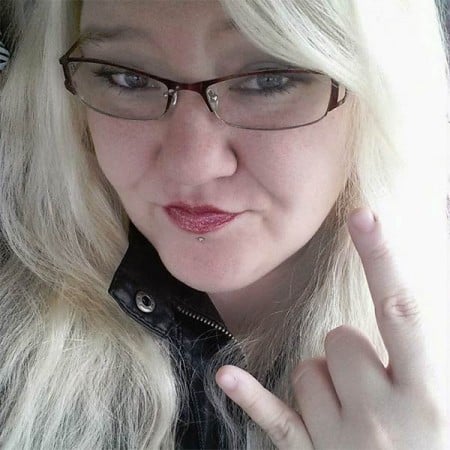 Growing up in Nashville, Tennessee, Kristen Musser grew to love radio.
Growing up in Nashville, Tennessee, Kristen Musser grew to love radio.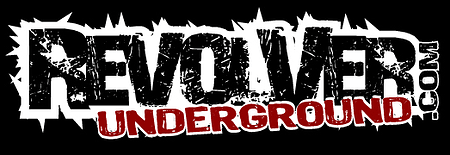 Since starting her apprenticeship, Kristen has gotten a wide range of experiences in broadcasting, thanks in part to her mentor’s broad base of connections in both Internet and terrestrial radio. While Eric has been teaching her a lot of the ins and outs of broadcasting with his own weekly Internet indie-rock music show Revolver Underground, he also maintains a relationship with his former station, 102.9 “The Buzz,” Nashville’s premier rock station. He arranged for Kristen to shadow radio personality Hayley St. John during a live broadcast, to see firsthand what goes on in the studio behind the scenes. Kristen recalls it was an eye-opening experience
“What the listener hears versus what [is] actually going on is a whole other world half the time,” she says. “I had no idea that it was a lot of recording and then mixing it around to make it sound-wise, and then playback. And so I’ve realized that not a lot of the live stuff is actually live.”
One of the challenges Hayley says she’s been working on is developing her “radio voice,” and how to sound more conversational on-air and in recording work without sounding hesitant or awkward. She says both Eric and Hayley gave her good advice about it. “One thing that my mentor told me to do that’s helped tremendously is to bring up a picture, either on my computer or a print, of somebody like a friend or a parent, boyfriend or something, and post it right there beside whatever you’re reading,” says Kristen. “That way, it looks like you’re talking to somebody to sound more conversational, and not like a robot or a receptionist.”
Since starting her apprenticeship, Kristen has gotten a wide range of experiences in broadcasting, thanks in part to her mentor’s broad base of connections in both Internet and terrestrial radio. While Eric has been teaching her a lot of the ins and outs of broadcasting with his own weekly Internet indie-rock music show Revolver Underground, he also maintains a relationship with his former station, 102.9 “The Buzz,” Nashville’s premier rock station. He arranged for Kristen to shadow radio personality Hayley St. John during a live broadcast, to see firsthand what goes on in the studio behind the scenes. Kristen recalls it was an eye-opening experience
“What the listener hears versus what [is] actually going on is a whole other world half the time,” she says. “I had no idea that it was a lot of recording and then mixing it around to make it sound-wise, and then playback. And so I’ve realized that not a lot of the live stuff is actually live.”
One of the challenges Hayley says she’s been working on is developing her “radio voice,” and how to sound more conversational on-air and in recording work without sounding hesitant or awkward. She says both Eric and Hayley gave her good advice about it. “One thing that my mentor told me to do that’s helped tremendously is to bring up a picture, either on my computer or a print, of somebody like a friend or a parent, boyfriend or something, and post it right there beside whatever you’re reading,” says Kristen. “That way, it looks like you’re talking to somebody to sound more conversational, and not like a robot or a receptionist.”
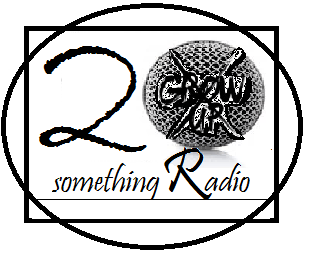 Now approaching the end of her apprenticeship, Kristen is quickly finding her feet in broadcasting, making solid connections, getting some great opportunities for experience, and making some opportunities of her own. While she is currently developing her own Internet radio podcast—a talk show called 20somethingRadio that will talk about the issues young adults face—her mentor Eric is now also entrusting her with more responsibilities with his show Revolver Underground, asking her to produce the show while he works on expanding its reach. “I am producing the show now,” says Kristen, “and once a month or so, I’ll pick out the music and do the entire show myself. I’ve done that twice now, and it’s nerve wracking but so fulfilling at the same time. I love it!”
But for Kristen, perhaps the most personally rewarding experience has been gaining an important new connection—namely, the man who first inspired her to pursue a career in radio, Lonn David.
“The radio show that played late Saturday nights when I was a teen, and the DJ that hosted it, are back on the air after 13 years,” she says. “I jumped up and down and screamed like a Beatles groupie upon finding out he was back. I wrote him an email to express my excitement and tell him how much the show meant to me, and he replied! …He encouraged me in my choices and actually recalled the day that I got to meet him when picking up a prize I won over the air. But what’s awesome is that he wants me to keep in touch…It’s a huge, uplifting confidence boost having your radio idol interested in your career.”
But it gets even better. “To put a candle on top of this whole cake,” she says, “he’s agreed to do a Skype interview with me for my upcoming podcast/demo that I’m working on.”
That’s right: the DJ who first inspired Kristen to become a radio show host comes back on the scene just as she’s about to launch her career—and is slated to be her first guest on her premiere podcast!
Talk about coming full circle.
Now approaching the end of her apprenticeship, Kristen is quickly finding her feet in broadcasting, making solid connections, getting some great opportunities for experience, and making some opportunities of her own. While she is currently developing her own Internet radio podcast—a talk show called 20somethingRadio that will talk about the issues young adults face—her mentor Eric is now also entrusting her with more responsibilities with his show Revolver Underground, asking her to produce the show while he works on expanding its reach. “I am producing the show now,” says Kristen, “and once a month or so, I’ll pick out the music and do the entire show myself. I’ve done that twice now, and it’s nerve wracking but so fulfilling at the same time. I love it!”
But for Kristen, perhaps the most personally rewarding experience has been gaining an important new connection—namely, the man who first inspired her to pursue a career in radio, Lonn David.
“The radio show that played late Saturday nights when I was a teen, and the DJ that hosted it, are back on the air after 13 years,” she says. “I jumped up and down and screamed like a Beatles groupie upon finding out he was back. I wrote him an email to express my excitement and tell him how much the show meant to me, and he replied! …He encouraged me in my choices and actually recalled the day that I got to meet him when picking up a prize I won over the air. But what’s awesome is that he wants me to keep in touch…It’s a huge, uplifting confidence boost having your radio idol interested in your career.”
But it gets even better. “To put a candle on top of this whole cake,” she says, “he’s agreed to do a Skype interview with me for my upcoming podcast/demo that I’m working on.”
That’s right: the DJ who first inspired Kristen to become a radio show host comes back on the scene just as she’s about to launch her career—and is slated to be her first guest on her premiere podcast!
Talk about coming full circle.
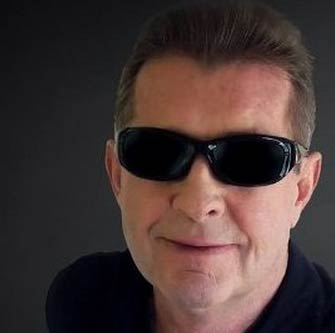 Scott Walker is a major market, on-air radio broadcasting program director and on-air host, known for his strategic and focused hands-on approach to radio programming and talent development. A consummate professional, Scott has years of experience working with major market players including CBS Radio, Citadel Broadcasting, and Cox Media.
We are proud to have Scott Walker on-board to mentor select Radio Connection apprentices in the Tampa and St. Petersburg, Florida area.
Want to apprentice with Scott? Enquire here
Scott Walker is a major market, on-air radio broadcasting program director and on-air host, known for his strategic and focused hands-on approach to radio programming and talent development. A consummate professional, Scott has years of experience working with major market players including CBS Radio, Citadel Broadcasting, and Cox Media.
We are proud to have Scott Walker on-board to mentor select Radio Connection apprentices in the Tampa and St. Petersburg, Florida area.
Want to apprentice with Scott? Enquire here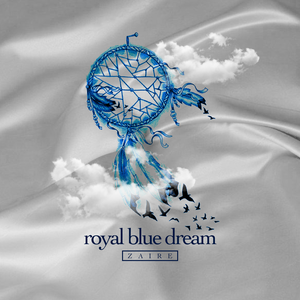 Recording Connection apprentice and rapper/artist Zaire Small just released his much-anticipated full-length album, Royal Blue Dream, available for purchase on iTunes and through every major music store worldwide! Listen to a track in the Apprentice Media section below.
Recording Connection apprentice and rapper/artist Zaire Small just released his much-anticipated full-length album, Royal Blue Dream, available for purchase on iTunes and through every major music store worldwide! Listen to a track in the Apprentice Media section below.
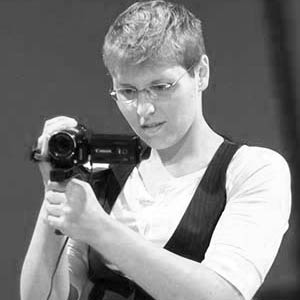 Recent Film Connection grad Daryn Davidson of Ringoes, New Jersey is keeping her skills sharp by editing and collaborating on “The Naked Truth” an online docu-series that focuses on how today’s entrepreneurs, creatives, artists and game-changers make it happen! You go Daryn!
Recent Film Connection grad Daryn Davidson of Ringoes, New Jersey is keeping her skills sharp by editing and collaborating on “The Naked Truth” an online docu-series that focuses on how today’s entrepreneurs, creatives, artists and game-changers make it happen! You go Daryn!
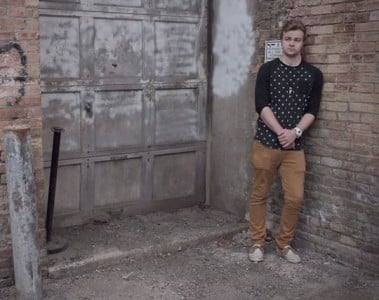 Dylan Heidt (Minnesota, MN) just landed an EDM record deal with Deviant Lizard! Funny thing is this Recording Connection apprentice says he ventured into EDM “just for fun.” He put a couple of EDM tracks up on Soundcloud, and tells us, “Somebody from the label heard them and reached out to me.” It goes to show, creating and getting your work out there, including those side-projects, can really pay off! Hear one of Dylan’s tracks in the Apprentice Media Section below!
Dylan Heidt (Minnesota, MN) just landed an EDM record deal with Deviant Lizard! Funny thing is this Recording Connection apprentice says he ventured into EDM “just for fun.” He put a couple of EDM tracks up on Soundcloud, and tells us, “Somebody from the label heard them and reached out to me.” It goes to show, creating and getting your work out there, including those side-projects, can really pay off! Hear one of Dylan’s tracks in the Apprentice Media Section below!
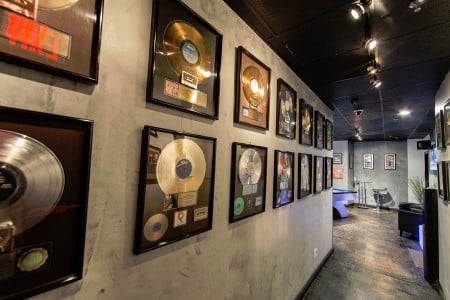 Dakarai “D.G.” Gwitira: Well I studied in Texas, and I moved to New York…I started at Quad, I’d say mid-2010, for I’d say a total of about five months, and then I left Quad and I started working for record labels independently. And I was working with a lot of songwriters and things of that sort. And then some of the writers I would work with actually worked out of Quad, and the studio recognized that, and they were like, “Oh, how would you feel about bringing some of these clients to us and work out of here and become the house guy here?” And that’s pretty much how it went down, and from then I’ve been working at Quad.
RRFC: So they recognized your talent and brought you back later on.
D.G: Right, exactly, so it just happened to work out. So it literally was an opportunity that presented itself. I just kept working hard, and one thing led to the other.
RRFC: So it seems like your networking skills led you to a full time position.
D.G: Definitely. It was definitely networking. The biggest thing that I try to tell, especially some of the students, is the skill is very, very important—however, sometimes what may carry somebody over is the personality and how you communicate with people. Because you know, we’re working with music and it’s primarily about the vibe in the studio…But if your attitude is bad, you might be the best, but the client might not necessarily– it’s not going to help them create the magic that they want to create. You hear a lot of musicians talk about “magic,” and if you’re not part of that magic, they really don’t want to work with you. The personality is very important, and skill is very important, and when you have both of those then you’re definitely a golden child, you know, you’re good to go.
RRFC: Have you ever seen a situation where an engineer has thrown off an artist, or an assistant engineer, and they nicely asked for someone else to come in?
D.G: Oh yes, that’s actually pretty standard, but fortunately that doesn’t happen to me [laughs]. A big gig I got [was] for a songwriter who was signed to Sony TV, which was one of my first big label gigs…this client had actually kicked off four engineers, off the sessions. So I was the fifth guy to come in and do the session, and I did that, and it just happened to work out. They liked me, they were like, “Every time I come here I want to work with him,” and it just went from there, really.
Dakarai “D.G.” Gwitira: Well I studied in Texas, and I moved to New York…I started at Quad, I’d say mid-2010, for I’d say a total of about five months, and then I left Quad and I started working for record labels independently. And I was working with a lot of songwriters and things of that sort. And then some of the writers I would work with actually worked out of Quad, and the studio recognized that, and they were like, “Oh, how would you feel about bringing some of these clients to us and work out of here and become the house guy here?” And that’s pretty much how it went down, and from then I’ve been working at Quad.
RRFC: So they recognized your talent and brought you back later on.
D.G: Right, exactly, so it just happened to work out. So it literally was an opportunity that presented itself. I just kept working hard, and one thing led to the other.
RRFC: So it seems like your networking skills led you to a full time position.
D.G: Definitely. It was definitely networking. The biggest thing that I try to tell, especially some of the students, is the skill is very, very important—however, sometimes what may carry somebody over is the personality and how you communicate with people. Because you know, we’re working with music and it’s primarily about the vibe in the studio…But if your attitude is bad, you might be the best, but the client might not necessarily– it’s not going to help them create the magic that they want to create. You hear a lot of musicians talk about “magic,” and if you’re not part of that magic, they really don’t want to work with you. The personality is very important, and skill is very important, and when you have both of those then you’re definitely a golden child, you know, you’re good to go.
RRFC: Have you ever seen a situation where an engineer has thrown off an artist, or an assistant engineer, and they nicely asked for someone else to come in?
D.G: Oh yes, that’s actually pretty standard, but fortunately that doesn’t happen to me [laughs]. A big gig I got [was] for a songwriter who was signed to Sony TV, which was one of my first big label gigs…this client had actually kicked off four engineers, off the sessions. So I was the fifth guy to come in and do the session, and I did that, and it just happened to work out. They liked me, they were like, “Every time I come here I want to work with him,” and it just went from there, really.
 RRFC: Do you ever have a conversation with someone, and they have these expectations of being an overnight sensation? Do you ever have to tell people it’s not that quick, it’s more of a gradual approach?
D.G: Of course. I was one of those people when I first started. I was one of those people that thought, “Oh, you know, gonna go in and do this, and then by this time I should have made it.”…But it’s just like anything else—it’s a process…The thing is that you really have to ride on faith and believe in yourself, and just accept that it’ll happen as long as you keep getting better.
RRFC: Did your impression of “making it” change the longer that you worked in the business?
D.G: Of course—I would say “making it,” it’s really relative. It’s a personal thing, you know. For some people, “making it” is, “Oh, I want to be a star on TV.” For some people, “making it” is, “I just want to be able to make a living working on music.”…So you can decide to say, “I still haven’t made it,” or, “You know what, I’m somewhere. At least I’m paying my bills through music, opposed to working fast food, or working at Chase Bank as a teller.” It’s one of those things that’s all relative, but I would say a more reasonable term of “making it” would be, as long as you’re experiencing consistent progress and if you’re able to sustain yourself somewhat, then you’re making it. The rest happens over time, but I’ve yet to meet somebody who made it overnight, with all the clients I’ve worked with when I speak with them. I’ve yet to meet somebody who just had their one single blow up, [and] even if they do have one single blow up, they’ve been recording for like, five years prior to that when it happened.
RRFC: Was there anything that you had to learn on the sly working at the studio that maybe a traditional campus didn’t necessarily know how to prepare you for?
D.G: I’ll put it this way, and this is why I’m an advocate for the program. The school teaches, for instance, the personality thing, or how to deal with clients and the real world stuff. [Traditional] school didn’t necessarily teach that. I’ll say, for example, wrapping up cables. When I went to school, I was taught you wrap cables and then when you get to the end, you make a little knot. This is how we were taught, so everyone I went to school with was taught this. I remember my first week at Quad, I’m wrapping up cables, put that little knot, and the people there are like, “What, what are you doing?” And for me, I’m completely clueless that I’m not supposed to do that, but that’s how I was taught, and that’s what I knew…What happens is, when you’re in a professional setting, you’re working with people who go to other studios, so the definition of what is right is more accurate because the clients that say, they’ve worked in LA, they’ve worked in Texas, they’ve worked in Atlanta, and there’s a general “this is right” way to do things. And to be a successful business, like Quad is, we have to sort of know what is accepted around the world, in a sense.
RRFC: Do you ever have a conversation with someone, and they have these expectations of being an overnight sensation? Do you ever have to tell people it’s not that quick, it’s more of a gradual approach?
D.G: Of course. I was one of those people when I first started. I was one of those people that thought, “Oh, you know, gonna go in and do this, and then by this time I should have made it.”…But it’s just like anything else—it’s a process…The thing is that you really have to ride on faith and believe in yourself, and just accept that it’ll happen as long as you keep getting better.
RRFC: Did your impression of “making it” change the longer that you worked in the business?
D.G: Of course—I would say “making it,” it’s really relative. It’s a personal thing, you know. For some people, “making it” is, “Oh, I want to be a star on TV.” For some people, “making it” is, “I just want to be able to make a living working on music.”…So you can decide to say, “I still haven’t made it,” or, “You know what, I’m somewhere. At least I’m paying my bills through music, opposed to working fast food, or working at Chase Bank as a teller.” It’s one of those things that’s all relative, but I would say a more reasonable term of “making it” would be, as long as you’re experiencing consistent progress and if you’re able to sustain yourself somewhat, then you’re making it. The rest happens over time, but I’ve yet to meet somebody who made it overnight, with all the clients I’ve worked with when I speak with them. I’ve yet to meet somebody who just had their one single blow up, [and] even if they do have one single blow up, they’ve been recording for like, five years prior to that when it happened.
RRFC: Was there anything that you had to learn on the sly working at the studio that maybe a traditional campus didn’t necessarily know how to prepare you for?
D.G: I’ll put it this way, and this is why I’m an advocate for the program. The school teaches, for instance, the personality thing, or how to deal with clients and the real world stuff. [Traditional] school didn’t necessarily teach that. I’ll say, for example, wrapping up cables. When I went to school, I was taught you wrap cables and then when you get to the end, you make a little knot. This is how we were taught, so everyone I went to school with was taught this. I remember my first week at Quad, I’m wrapping up cables, put that little knot, and the people there are like, “What, what are you doing?” And for me, I’m completely clueless that I’m not supposed to do that, but that’s how I was taught, and that’s what I knew…What happens is, when you’re in a professional setting, you’re working with people who go to other studios, so the definition of what is right is more accurate because the clients that say, they’ve worked in LA, they’ve worked in Texas, they’ve worked in Atlanta, and there’s a general “this is right” way to do things. And to be a successful business, like Quad is, we have to sort of know what is accepted around the world, in a sense.
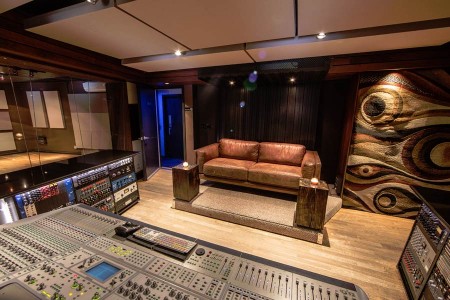 RRFC: Who are some of the favorite artists that you’ve gotten to work with?
D.G: [I] just worked with Jamie Foxx, and the song we worked on is actually his latest single. There’s Jamie Foxx and Chris Brown, and there’s another guy on the record…Jamie Foxx is really cool guy, and awesome, awesome personality. Got to work with Waka Flocka, which was really cool, Sara Bareilles, Akon. Let’s see, T.I. is really cool as well. That guy’s a master at his craft. Actually, all these guys [are] masters at their craft. Man, you can tell that they practice a whole lot…And Wallpaper—I have to mention Ricky Reed, I’ve learned a lot from that guy. He’s really cool, he produced “Talk Dirty” by Jason Derulo, and “Wiggle.” He’s a great, great guy.
RRFC: Awesome. And have any of the Recording Connection students gotten to sit in on any of these sessions?
D.G: Yes, actually. When I was in the process of working on some of the Jamie Foxx records, most of the students were actually there for that, and I would explain to them that the record would probably be out like a month from then, and sure enough, it was on the radio.
RRFC: When potential apprentices come to interview with you, do you flesh out what they’re trying to get out of the program?
D.G: Definitely, that is one of the things I try to narrow down in an interview process, because sometimes—this is the thing with engineering: engineering, I believe, helps just about anything and everything in the music business. So let’s say you want to be a rapper, or you wanna be a singer or songwriter. When you’re engineering, you get to work with everyone else’s music beforehand, before it gets released or anything like that. You get to learn the formats, you get to learn why people do things this way. If you really listen to radio closely, you’ll notice that most things are formulated. So with that when you’re engineering, you have to understand and know that formula. You have to understand how to create that reverb, or create that delay, or what’s going on with that compression…If you’re an artist, you can then apply that to your own music. If you’re a writer, you get to record writers and see how they write, and see how they come up with ideas and all that. I don’t really know that there’s any other position in the music business that would probably give you that access…So I do try to narrow that down and explain what I just explained to you throughout the interview process.
RRFC: So how much do you enjoy teaching and mentoring?
D.G: I actually enjoy teaching a lot…It’s really just cool to just imagine being part of other people’s lives and helping their dreams come true, ‘cuz I remember when I was in school, one thing I hoped for, I was just like, “Man, I wish somebody would take me under their wing and mentor me.” And that never happened…So it’s one of those things that I enjoy, it’s like, I like sparking the passion or helping cultivate somebody’s passion. Help them get to their dreams.
RRFC: Who are some of the favorite artists that you’ve gotten to work with?
D.G: [I] just worked with Jamie Foxx, and the song we worked on is actually his latest single. There’s Jamie Foxx and Chris Brown, and there’s another guy on the record…Jamie Foxx is really cool guy, and awesome, awesome personality. Got to work with Waka Flocka, which was really cool, Sara Bareilles, Akon. Let’s see, T.I. is really cool as well. That guy’s a master at his craft. Actually, all these guys [are] masters at their craft. Man, you can tell that they practice a whole lot…And Wallpaper—I have to mention Ricky Reed, I’ve learned a lot from that guy. He’s really cool, he produced “Talk Dirty” by Jason Derulo, and “Wiggle.” He’s a great, great guy.
RRFC: Awesome. And have any of the Recording Connection students gotten to sit in on any of these sessions?
D.G: Yes, actually. When I was in the process of working on some of the Jamie Foxx records, most of the students were actually there for that, and I would explain to them that the record would probably be out like a month from then, and sure enough, it was on the radio.
RRFC: When potential apprentices come to interview with you, do you flesh out what they’re trying to get out of the program?
D.G: Definitely, that is one of the things I try to narrow down in an interview process, because sometimes—this is the thing with engineering: engineering, I believe, helps just about anything and everything in the music business. So let’s say you want to be a rapper, or you wanna be a singer or songwriter. When you’re engineering, you get to work with everyone else’s music beforehand, before it gets released or anything like that. You get to learn the formats, you get to learn why people do things this way. If you really listen to radio closely, you’ll notice that most things are formulated. So with that when you’re engineering, you have to understand and know that formula. You have to understand how to create that reverb, or create that delay, or what’s going on with that compression…If you’re an artist, you can then apply that to your own music. If you’re a writer, you get to record writers and see how they write, and see how they come up with ideas and all that. I don’t really know that there’s any other position in the music business that would probably give you that access…So I do try to narrow that down and explain what I just explained to you throughout the interview process.
RRFC: So how much do you enjoy teaching and mentoring?
D.G: I actually enjoy teaching a lot…It’s really just cool to just imagine being part of other people’s lives and helping their dreams come true, ‘cuz I remember when I was in school, one thing I hoped for, I was just like, “Man, I wish somebody would take me under their wing and mentor me.” And that never happened…So it’s one of those things that I enjoy, it’s like, I like sparking the passion or helping cultivate somebody’s passion. Help them get to their dreams.
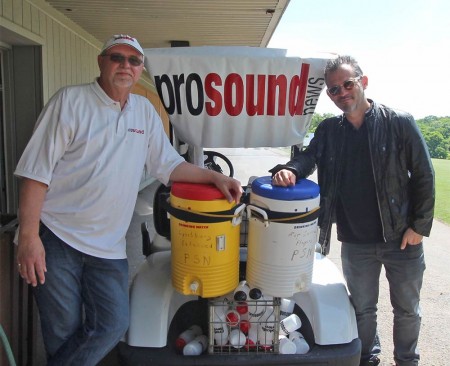 Following closely on the heels of Brian Kraft attending the 17th Annual GRAMMY® Block Party in Nashville, Tennessee, Recording Connection continued its participation at high-profile industry events by serving as a sponsor at the 18th Annual AudioMasters Benefit Golf Tournament. A beloved yearly event that took place on May 14-15 at the Harpeth Hills Golf Course in Nashville, the tournament serves as the primary fundraiser benefiting the Nashville Engineer Relief Fund (NERF), a 503c3 non-profit corporation benefiting Nashville’s audio engineers and their families in times of crisis.
AudioMasters is held as a production of the Audio Engineering Society Nashville Section on behalf of NERF, Inc. The Recording Connection sponsored Hole 8 on Day One (Thursday, May 14), and golfing foursomes (consisting of award-winning producers and engineers, management from top manufacturers and other industry figures) got a chance to relax and unwind at the Recording Connection Hole, while getting a massage and having golf balls cleaned by Recording Connection volunteers. Also helping out was Recording Connection apprentice Jonathan Dickerson, who was on the verge of his final exams, and has since been accepted into Recording Connection’s Masters Mentor program.
“A good portion of Nashville’s audio community turned out to support this great event,” stated Brian Kraft, “and I am really glad Recording Connection was able to contribute and participate.”
[gmedia id=3]
Following closely on the heels of Brian Kraft attending the 17th Annual GRAMMY® Block Party in Nashville, Tennessee, Recording Connection continued its participation at high-profile industry events by serving as a sponsor at the 18th Annual AudioMasters Benefit Golf Tournament. A beloved yearly event that took place on May 14-15 at the Harpeth Hills Golf Course in Nashville, the tournament serves as the primary fundraiser benefiting the Nashville Engineer Relief Fund (NERF), a 503c3 non-profit corporation benefiting Nashville’s audio engineers and their families in times of crisis.
AudioMasters is held as a production of the Audio Engineering Society Nashville Section on behalf of NERF, Inc. The Recording Connection sponsored Hole 8 on Day One (Thursday, May 14), and golfing foursomes (consisting of award-winning producers and engineers, management from top manufacturers and other industry figures) got a chance to relax and unwind at the Recording Connection Hole, while getting a massage and having golf balls cleaned by Recording Connection volunteers. Also helping out was Recording Connection apprentice Jonathan Dickerson, who was on the verge of his final exams, and has since been accepted into Recording Connection’s Masters Mentor program.
“A good portion of Nashville’s audio community turned out to support this great event,” stated Brian Kraft, “and I am really glad Recording Connection was able to contribute and participate.”
[gmedia id=3]
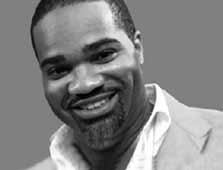 “When I heard about CASA Schools’s approach to culinary education I was blown away. I just wished that this sort of thing was available before I spent $50,000 for culinary school! They promised me a management position as soon as I graduated. I found out that that was a lie. On-the-job experience is the only way to go. The use of the culinary techniques and cooking methods day in and day out, from one scenario to the next is the best way to learn. Doing one recipe a day and paying over $200 a day is bull…”
— Troy Artis , Owner/ Operator of Chef Troy Personal Chef and Catering Services, Los Angeles, CA
“When I heard about CASA Schools’s approach to culinary education I was blown away. I just wished that this sort of thing was available before I spent $50,000 for culinary school! They promised me a management position as soon as I graduated. I found out that that was a lie. On-the-job experience is the only way to go. The use of the culinary techniques and cooking methods day in and day out, from one scenario to the next is the best way to learn. Doing one recipe a day and paying over $200 a day is bull…”
— Troy Artis , Owner/ Operator of Chef Troy Personal Chef and Catering Services, Los Angeles, CA

RRFC is education upgraded for the 21st century.
Get the latest career advice, insider production tips, and more!
Please fill out the following information, and RRFC Admissions will contact you to discuss our program offerings:
Stay in the Loop: Subscribe for RRFC news & updates!
© 2025 Recording Radio Film Connection & CASA Schools. All Rights Reserved.



